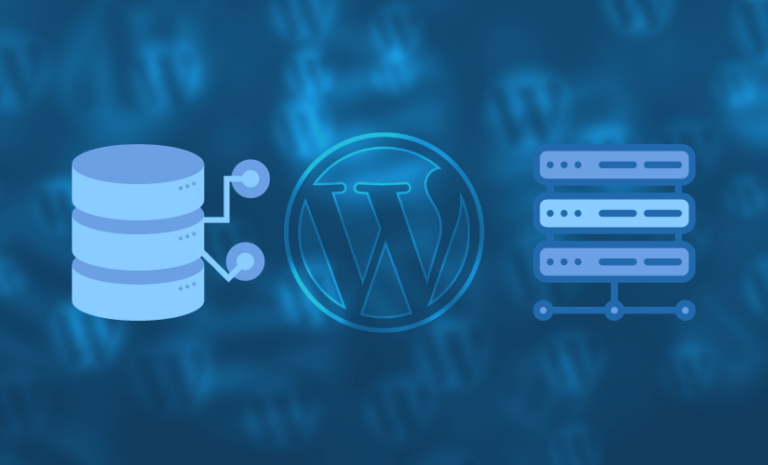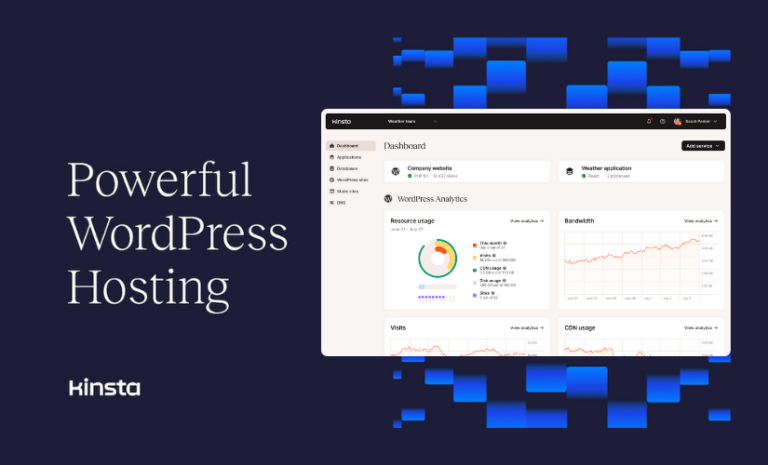Are you searching for the best hosting solution for online stores? Check out our comprehensive guide to selecting the perfect hosting for your e-commerce business.
Your online store’s performance can make or break your success. A slow-loading website, frequent downtimes, or limited scalability can frustrate potential customers and impact your revenue. That’s why selecting the best hosting solution is a critical decision for any e-commerce business.
Whether you’re launching a new online store or looking to upgrade your current setup, finding a hosting provider that meets your store’s unique requirements is essential. From speed and security to scalability and support, this guide will walk you through the key factors to consider when choosing the ideal hosting solution for your online store. Let’s dive in and ensure your website is ready to deliver a seamless shopping experience to your customers.
The Types of Hosting Available for eCommerce Stores

When it comes to running a successful eCommerce store, choosing the right type of hosting is a critical decision. With so many hosting options available, it’s essential to understand their differences and determine which one aligns best with your business needs.
Let’s explore the various types of hosting available for eCommerce stores, from shared hosting and VPS to cloud and dedicated servers. By understanding the pros and cons of each, you’ll be equipped to make an informed choice that ensures your store runs smoothly and efficiently. Let’s get started!
Shared Hosting
Shared hosting is the most basic and cost-effective hosting solution available. In this setup, multiple websites share the resources of a single physical server, including storage, bandwidth, and computing power. Hosting providers manage the server’s technical aspects, such as maintenance, security updates, and backups, making it an ideal choice for beginners or small businesses with limited technical expertise.
Best For:
- Small eCommerce stores or blogs.
- Websites with low traffic and modest resource requirements.
Pros:
- Extremely affordable.
- Easy to set up with no technical knowledge required.
- Managed server maintenance by the hosting provider.
Cons:
- Limited resources as they are shared among multiple websites.
- Performance can be affected if another site on the server experiences high traffic.
- Minimal customization and control.
Virtual Private Server (VPS) Hosting
VPS hosting divides a single physical server into multiple virtual environments, each operating as a dedicated server. Unlike shared hosting, your website gets its own allocated resources, which improves performance and reliability. VPS hosting provides a balance between affordability and control, making it a popular choice for growing businesses.
Best For:
- Medium-sized eCommerce stores with growing traffic.
- Businesses require more resources and control than shared hosting can provide.
Pros:
- Dedicated resources ensure better performance.
- Scalable to accommodate growing traffic.
- Greater control over server configurations.
Cons:
- Costs more than shared hosting.
- Requires some technical expertise to manage the server.
Dedicated Hosting
With dedicated hosting, your website has an entire physical server to itself. This setup offers maximum control, performance, and security since there’s no resource sharing. It’s the ultimate solution for businesses that require extensive resources or need to handle heavy traffic.
Best For:
- Large eCommerce stores with high traffic volumes.
- Websites requiring maximum customization, security, and performance.
Pros:
- Full control over server configuration.
- Enhanced performance as no resources are shared.
- High-level security with isolated server environments.
Cons:
- Expensive compared to other hosting types.
- Requires advanced technical knowledge for server management.
- Maintenance and management can be time-consuming without managed services.
Cloud Hosting
Often the most preferred option for businesses looking for the fastest WooCommerce hosting, cloud hosting presents a wonderful mix of performance and value. Cloud hosting uses a network of servers that helps to ensure scalability and reliability. It uses dynamic allocation to adjust resources based on demand spikes, making it perfect for growing businesses.
Best For:
- eCommerce stores expecting seasonal or event-based traffic spikes.
- Businesses prioritize reliability and scalability.
Pros:
- Pay-as-you-go pricing models make it cost-efficient.
- Highly scalable to accommodate sudden traffic surges.
- Reliable as data is stored across multiple servers, reducing downtime risks.
Cons:
- Can be more complex to set up and manage than traditional hosting.
- Costs can rise with heavy usage.
Managed Hosting
Managed hosting is a service where the hosting provider takes care of all technical aspects of your server, including maintenance, security, updates, and backups. It’s an excellent choice for businesses without in-house technical teams, as it allows them to focus on their core operations while leaving the technical details to experts.
Best For:
- Small to medium-sized businesses looking for hands-off hosting management.
- ECommerce stores require professional server management.
Pros:
- Hassle-free server maintenance handled by professionals.
- Enhanced security and performance monitoring.
- Excellent support from the hosting provider.
Cons:
- More expensive than unmanaged hosting options.
- Less direct control over server settings.
eCommerce-Specific Hosting
eCommerce-specific hosting solutions are tailored for online stores. These plans often come with features optimized for eCommerce platforms like WooCommerce, Shopify, or Magento. They include tools for payment processing, SSL certificates, shopping cart functionality, and enhanced security to protect sensitive customer data.
Best For:
- Online stores with a strong focus on performance and security.
- Businesses requiring features tailored specifically to eCommerce operations.
Pros:
- Optimized for handling eCommerce-specific tasks like transactions and product uploads.
- Built-in security measures, including SSL and PCI compliance.
- Scalable resources to handle high traffic and growing inventory.
Cons:
- Often more expensive than general hosting solutions.
- Limited flexibility if tied to a specific eCommerce platform.
What to Look for in eCommerce Hosting?

Going back to the real question of how to choose the best hosting for online stores, here is what you need to look out for.
High Uptime and Fast Loading Times
Downtime translates to lost sales. Think of it as throwing away a portion of your profit. It does not sound good for business. Studies show uptime improvements led to a 30 percent increase in completed purchases. Make sure to choose a hosting provider that can guarantee high uptime. Most of the leading options should offer at least 99.99 percent of uptime. Anything lower is not acceptable. For speed, make sure to leverage features like CDNs and caching to boost loading times. A faster loading time can reduce bounce rates by over 25 percent. Plus, the lower loading times ensure a great user experience.
Scalability for High-Traffic
E-commerce traffic is inherently unpredictable, often spiking during seasonal sales, special events, or holidays. To ensure your online store remains fast and responsive during these high-demand periods, it’s crucial to choose a hosting solution with robust scalability.
A scalable hosting plan allows you to effortlessly increase resources like CPU, RAM, and bandwidth during peak traffic, ensuring smooth operations and a seamless customer experience. Once the surge subsides, you can scale back to optimize costs while maintaining efficiency. This flexibility is vital for handling dynamic traffic patterns without compromising performance or reliability.
Impenetrable Security
All of us have to agree that security is non-negotiable for online stores. Your hosting provider must provide:
- SSL Certificates
- Automatic backups
- Firewalls and malware detection
Easy to Reach Customer Support
Even with top-notch hosting, technicalities might arise from time to time, and having support helps a lot. A responsive support team ensures minimal downtime and quick resolutions to problems. Always check for customer testimonials on third-party review aggregator sites to confirm the reliability of your provider.
Storage and Bandwidth
For any eCommerce store, adequate storage is essential to host high-resolution product images, videos, and other critical files that showcase your offerings. Ample storage ensures your website loads smoothly and delivers a rich user experience. Choose a hosting provider that not only offers generous storage capacity but also allows you to easily upgrade as your store grows.
Additionally, consider bandwidth requirements to handle website traffic seamlessly, ensuring visitors can browse and shop without delays or disruptions. A scalable solution for storage and bandwidth will keep your store efficient and prepared for growth.
Choosing Value Over Cost

We know how tempting it is to go with the cheapest option. But trust us when we say that this small amount saved can cost you a ton in the long run. That is why we suggest seeking out long-term value. Also, it hardly makes any sense to switch hosting providers since it is a tedious process. So, making the right choice at the beginning is very important. Invest in reliable hosting with robust features to ensure a smooth customer experience, higher sales, and fewer headaches.
Choosing the best hosting solution like Rapyd Cloud for online stores is a pivotal step toward building a successful eCommerce business. The right hosting provider ensures optimal performance, reliability, security, and scalability, all of which are critical for delivering a seamless shopping experience to your customers. By carefully evaluating your store’s specific needs—such as speed, storage, bandwidth, and budget—you can select a hosting plan that supports your growth and keeps your business running smoothly.
Remember, your hosting solution is the backbone of your online store. Investing in a reliable and scalable option today can save you from costly headaches in the future. We hope this guide helps you find the perfect hosting solution for your eCommerce journey!


